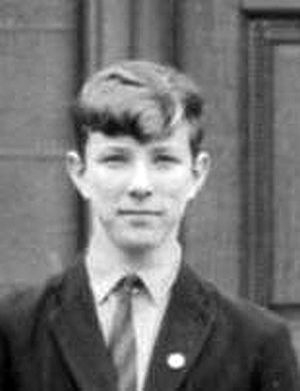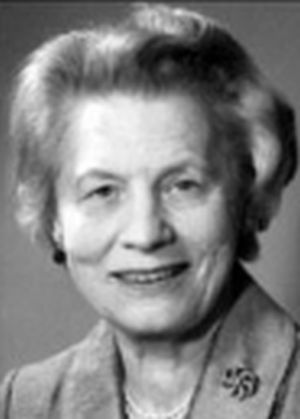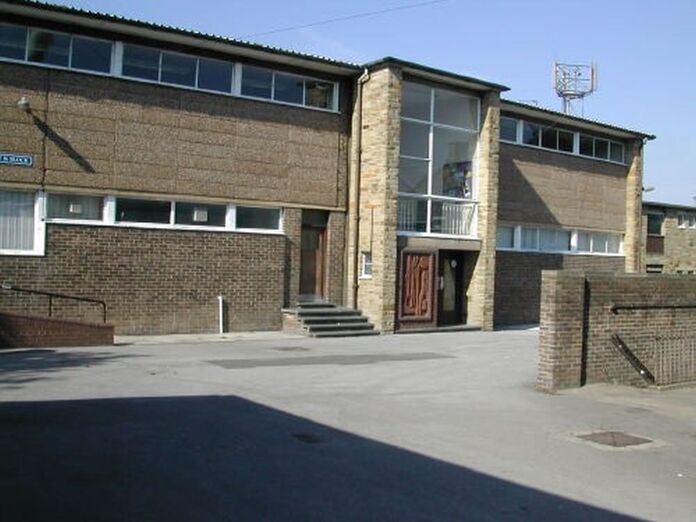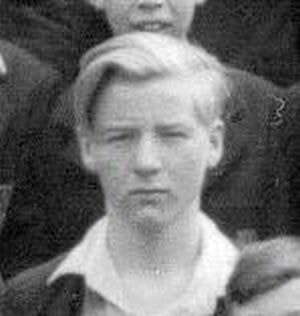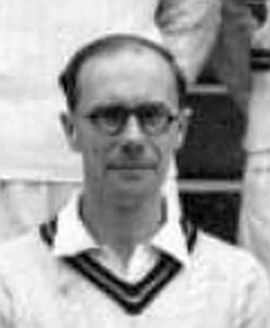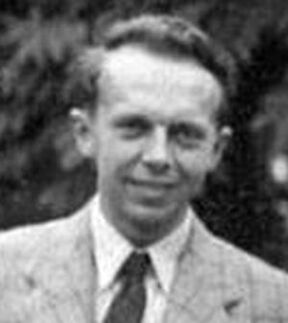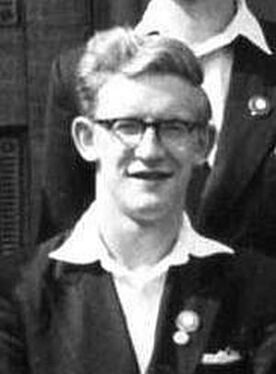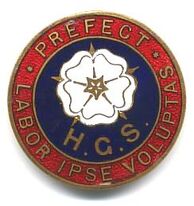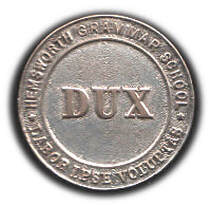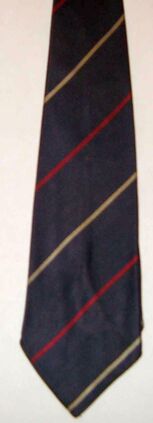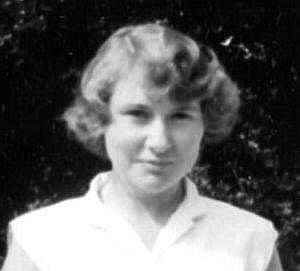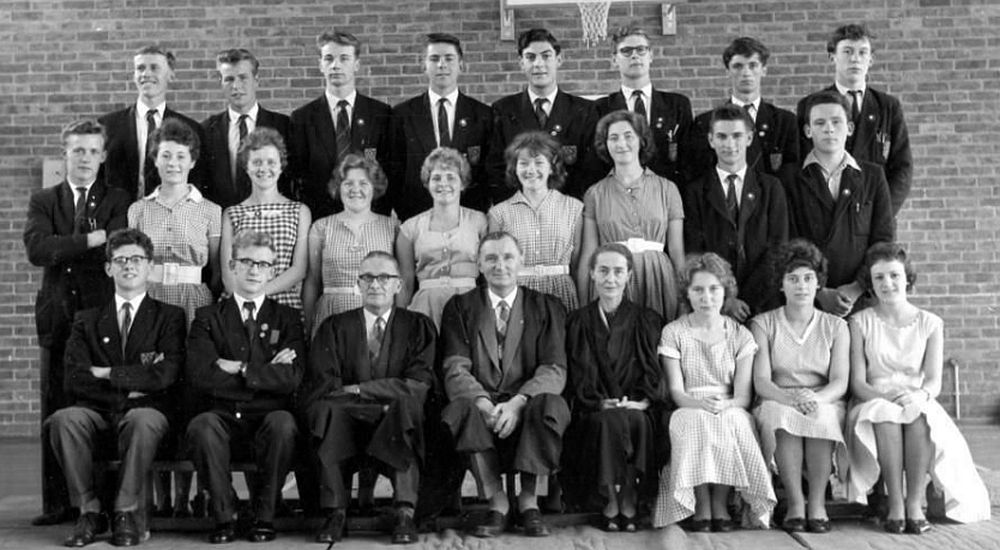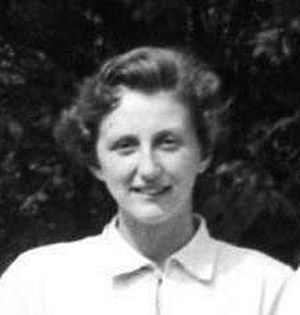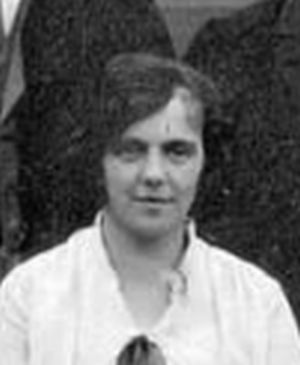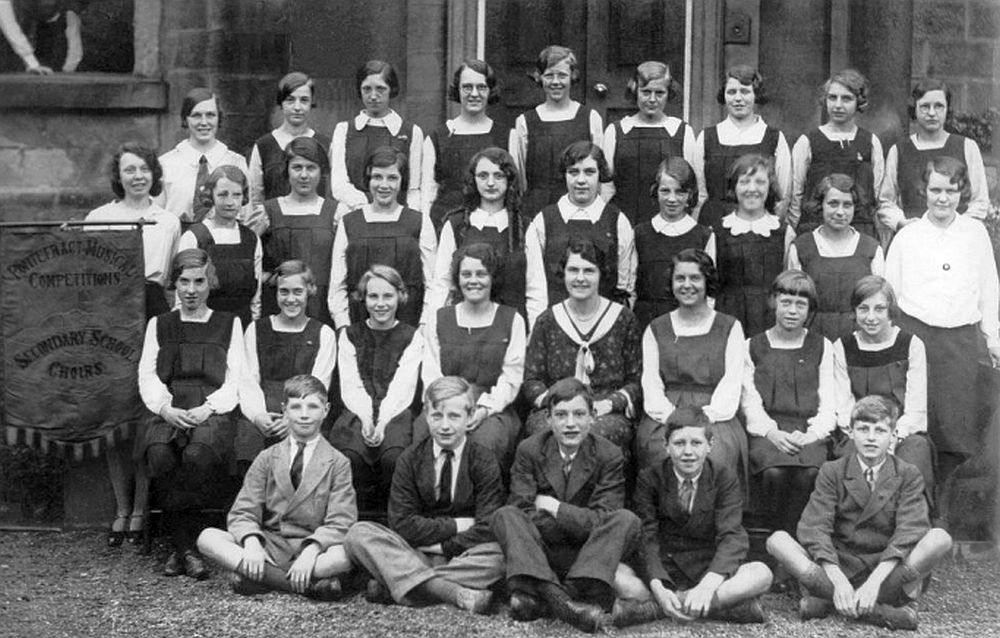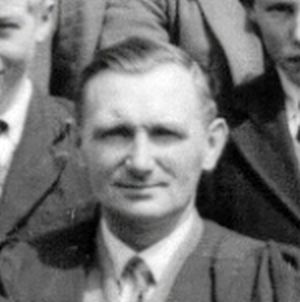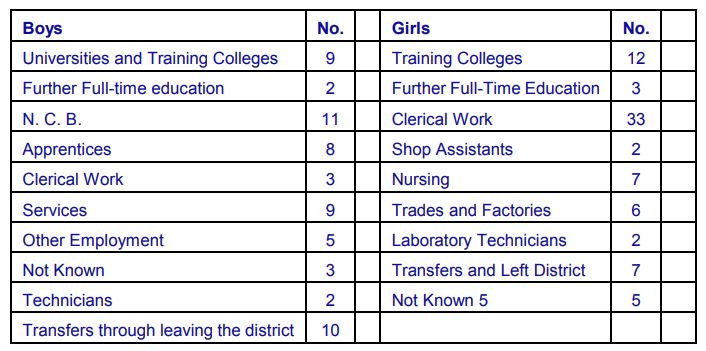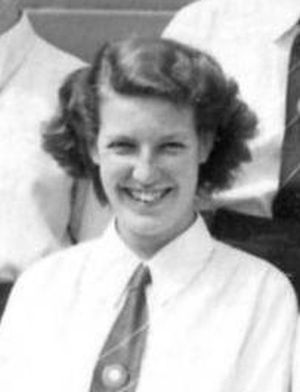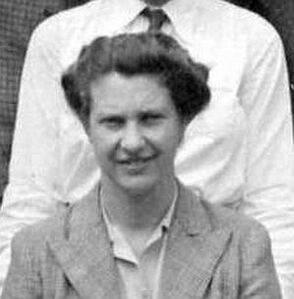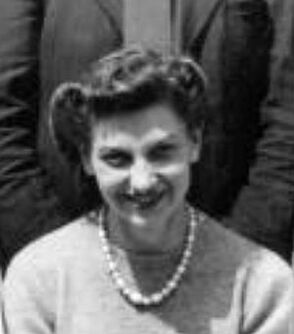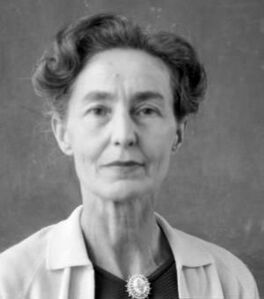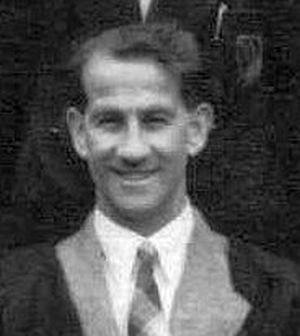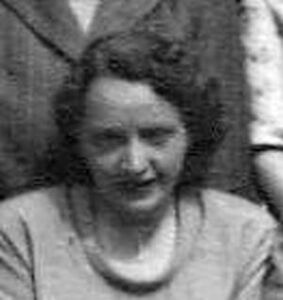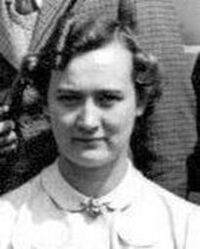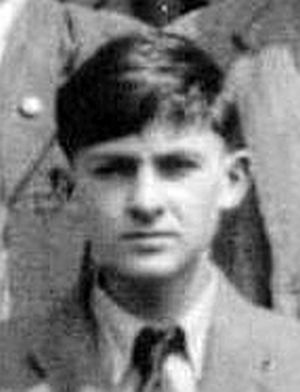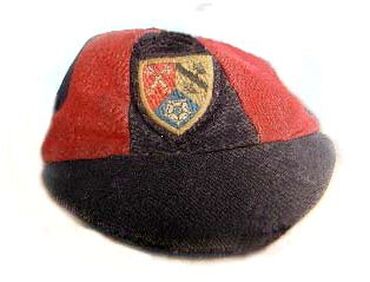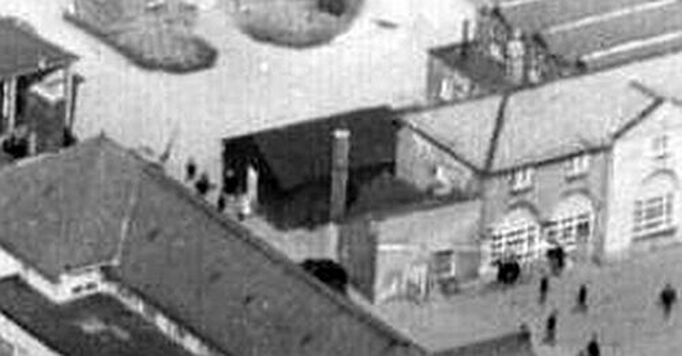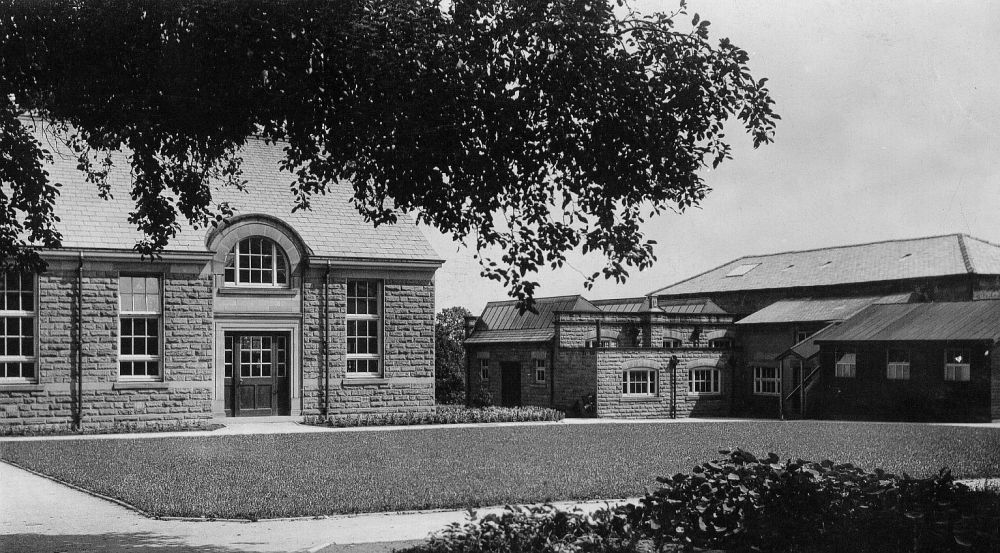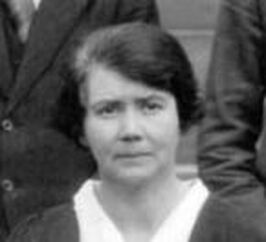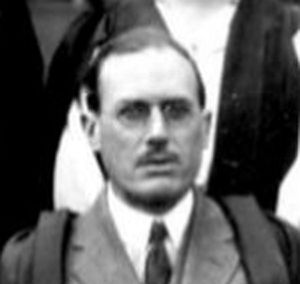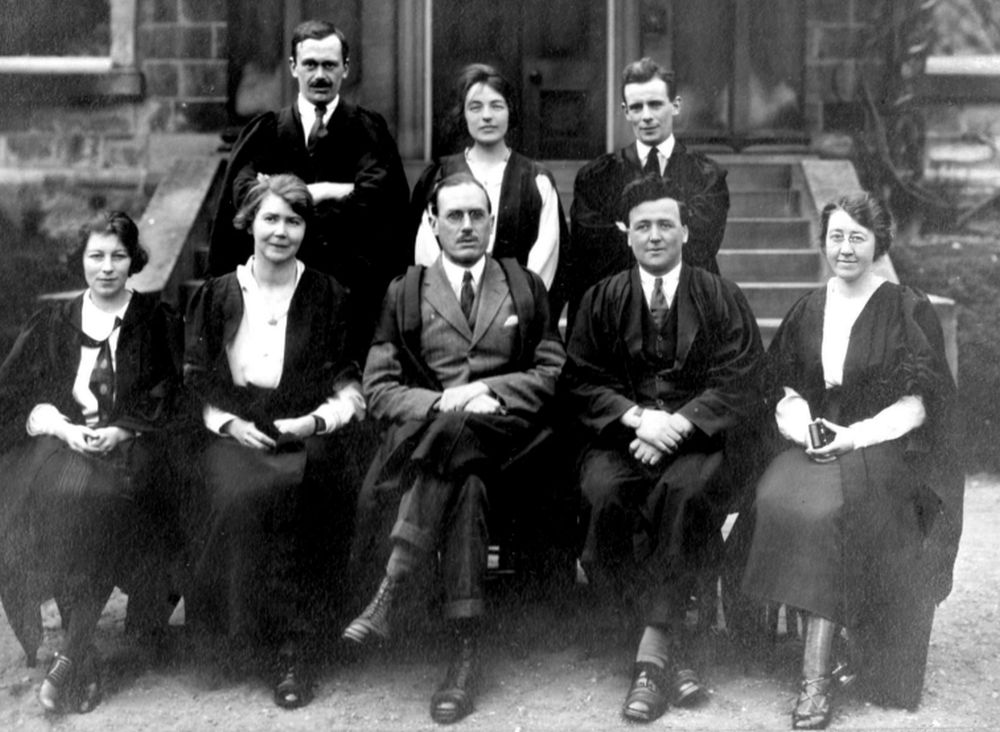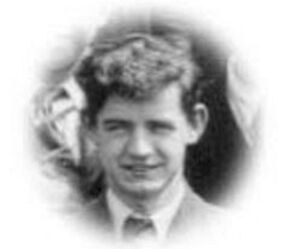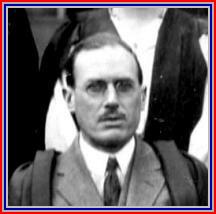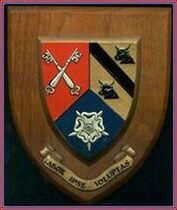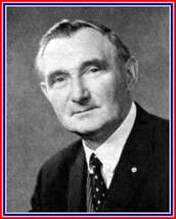A Personal View 17
9 articles. Updated 17.04.2022
9 articles. Updated 17.04.2022
I have read many contributions within your site relating to the platform that HGS provided for later life - Labor ipse voluptas - has indeed served us all well. One of the Sons of Yorkshire."
John Basford (1964-71, Price)
John Basford (1964-71, Price)
John Basford
Table of contents
|
1. Early days and Speech Day 1955
2. Dux 3. Your Job or Your Marriage 4. Leaving school and different ways of progression,1956 5. Our HGS teachers 1943-50 |
6. The personal importance of HGS to Geoff Graham
7. The Black Shed 8. Miss M.A. Griffiths 9. School History from a pupil's research |
1. Early days and Speech Day 1955
1955: In the beginning
I was in our kitchen one day in 1955 when my dad opened the letter which offered me a grammar school place. I had a choice of Hemsworth Grammar School or Kings School, Pontefract. I had never heard of either! I was not well informed about anything at that time as I was too busy making stay-up kites, trollies (with steering and suspension), dens, dirt-tracking on my brother's Raleigh in Walton Wood, playing football and cricket &c. In fact I did not know that I had taken my 11+ examination. To me it was just a test that I had to take before I went out to play on the back field or around the War Memorial. I had obviously passed the exam. My dad told me about the two schools. He said that Kings was "boys only" and that Hemsworth "was boys and girls". I had to make a choice, so I said Hemsworth as "boys and girls" sounded more like the junior school in Upton. That was it! No great thought about the choice at all. I had no idea that I would attend that school for the next seven years.
I was in our kitchen one day in 1955 when my dad opened the letter which offered me a grammar school place. I had a choice of Hemsworth Grammar School or Kings School, Pontefract. I had never heard of either! I was not well informed about anything at that time as I was too busy making stay-up kites, trollies (with steering and suspension), dens, dirt-tracking on my brother's Raleigh in Walton Wood, playing football and cricket &c. In fact I did not know that I had taken my 11+ examination. To me it was just a test that I had to take before I went out to play on the back field or around the War Memorial. I had obviously passed the exam. My dad told me about the two schools. He said that Kings was "boys only" and that Hemsworth "was boys and girls". I had to make a choice, so I said Hemsworth as "boys and girls" sounded more like the junior school in Upton. That was it! No great thought about the choice at all. I had no idea that I would attend that school for the next seven years.
So 1955-56 became my first year at HGS, and on Wednesday 9th November 1955 I went to my first Speech Day at the Hippodrome. I was amazed at the colour, the large audience, the professionalism and the good behaviour shown during the afternoon. I felt very small and certainly not part of what I was witnessing. The winners had been at the school for a long time - me, just a few weeks. In those few weeks I had gone from being a carefree junior school pupil to an HGS pupil in 1C who was under some pressure. The questions and doubts were beginning to form! My personal tasks at this time were really observation, the development of personal discipline and the general adjustment to secondary education as it was delivered in this Grammar School. Overall, my most important aim was to stay out of trouble. The Headmaster, a remote person to me at that time, had a cane! This frightened me. I was to follow this aim throughout my HGS career. I was a "goody two shoes". I remember that Mr Leonard, our P.E. and Geography teacher in 1C stood at the front of the class in Room 23 one day and spoke to us about our present HGS opportunity. We should make the most of it and not waste it. He said that there were many boys and girls in the area that would love to come to this school in our place. That remark obviously hit home.
After 1955, I think I went to every Speech Day while I was at HGS and actually took part in my last one in 1961 when I had to give an address to the very large audience. At HGS I never won an academic prize and I always stood in awe of the Prize Winners. I could only dream of such an achievement. The winners were some of the cleverest people in the Hemsworth area. I saw this in so many lessons as I went through the school.
After 1955, I think I went to every Speech Day while I was at HGS and actually took part in my last one in 1961 when I had to give an address to the very large audience. At HGS I never won an academic prize and I always stood in awe of the Prize Winners. I could only dream of such an achievement. The winners were some of the cleverest people in the Hemsworth area. I saw this in so many lessons as I went through the school.
Dr. Edith Summerskill M.P.
At the Speech Day, Dr. Edith Summerskill M.P., was the principal speaker. She said that she had been disappointed to hear the Headmaster say that a large number of pupils left school before taking their General Certificate of Education. If they did that they were hurting the older people, but were being so stupid that they did not know what they were throwing away. Like Mr Leonard told us!
Turning to the parents, she said that the education which was offered to their children was something which many of them would have given a great deal to possess but which they were denied. It was offered to the children, but they had a craving to leave it because they heard that there was probably a large wage which they could earn.
What kind of life did the scholars want? Did they want to see the world? When they watched television they were looking at people doing things which they themselves might secretly like to do. Did they always want to live second-hand lives? Their only chance of doing the exciting, adventurous, fascinating and colourful things of life was to see that they got the most out of school. “If parents allow children to leave school they might thank you for the next year or two, but they will never thank you ten years hence,” said Dr. Summerskill. “They will turn to you in your old age and say, ‘You should have known better’.”
The world wanted scientists of every kind, and if people got bored with a job in this country there were many countries which would jump at their services. There was a thirst in those countries for bright young things who had had the sense to stay at school a year or two longer and improve their knowledge and learn self-discipline. Today they found women doing well in every field. As they stood over the sink doing the inevitable washing up, parents would say they wished they had a chance. They should see to it that their children did not develop a sense of frustration. In the past women fought for education for girls and they would be shocked to learn now that many girls were throwing their chances away.
Turning to the parents, she said that the education which was offered to their children was something which many of them would have given a great deal to possess but which they were denied. It was offered to the children, but they had a craving to leave it because they heard that there was probably a large wage which they could earn.
What kind of life did the scholars want? Did they want to see the world? When they watched television they were looking at people doing things which they themselves might secretly like to do. Did they always want to live second-hand lives? Their only chance of doing the exciting, adventurous, fascinating and colourful things of life was to see that they got the most out of school. “If parents allow children to leave school they might thank you for the next year or two, but they will never thank you ten years hence,” said Dr. Summerskill. “They will turn to you in your old age and say, ‘You should have known better’.”
The world wanted scientists of every kind, and if people got bored with a job in this country there were many countries which would jump at their services. There was a thirst in those countries for bright young things who had had the sense to stay at school a year or two longer and improve their knowledge and learn self-discipline. Today they found women doing well in every field. As they stood over the sink doing the inevitable washing up, parents would say they wished they had a chance. They should see to it that their children did not develop a sense of frustration. In the past women fought for education for girls and they would be shocked to learn now that many girls were throwing their chances away.
The 1957 New Science Block
When the boys and girls saw the new Science Block which was being built at the school, they should remember that it represented adventure. They were living in a scientific world which would control all their actions in the future. Referring to the fact that the headmaster was an Esperantist, Dr. Summerskill said she had visited many countries and the greatest obstacle was the fact that the people could not speak the same language. She hoped that if she returned to the school at some future date she would be able to present a prize for Esperanto.
Bill Hewitt
Dear Sheila,
I was in Talbot house. Do you remember:- "Talbot wouldn't have Holgate as a Guest at any Price!!" We played most of the games in the old air-raid shelters. I remember Mr Stewart - he gave me a love of Maths that has lasted a lifetime. I am a retired Chartered E. Engineer but I still do maths teaching support at a College. I was in the male voice choir - coached by the super Music, Religious Education and English teacher Mr Burnett. I used to take part in the School and House dramatics.
I was in Talbot house. Do you remember:- "Talbot wouldn't have Holgate as a Guest at any Price!!" We played most of the games in the old air-raid shelters. I remember Mr Stewart - he gave me a love of Maths that has lasted a lifetime. I am a retired Chartered E. Engineer but I still do maths teaching support at a College. I was in the male voice choir - coached by the super Music, Religious Education and English teacher Mr Burnett. I used to take part in the School and House dramatics.
|
Mr Stewart (Mathematics)
|
Mr Burnett (Religious Education, English)
|
I went back to the old school last year to help with learning support. As you say the old Dining Room is now the Staff common room. It's funny how much smaller everything looked to how I remembered it.
I remember Speech Day at the Hippodrome - Edith Summerskill, who was Shirley William's mum, presented me my O Levels. She was Minister of Education at the time. I have never moved in such exalted circles since.
Bill Hewitt, HGS 1950-55
(December 2003)
I remember Speech Day at the Hippodrome - Edith Summerskill, who was Shirley William's mum, presented me my O Levels. She was Minister of Education at the time. I have never moved in such exalted circles since.
Bill Hewitt, HGS 1950-55
(December 2003)
2. Dux
Geoff Cartledge, Head Boy 1959-60
If you remember, when the Upper Sixth took their A levels, the Assistant Prefects took over as Full Prefects for the back end of the summer term. I and a couple of other Lower Sixth pupils had been Full Prefects for all our Lower Sixth year. I was simply informed by Russ Hamilton that the staff thought that I would do a decent job as temporary Head Boy so I did exactly that for about a month.
The Prefects' Tie
Round about the second week of the following Autumn term, I was in a Physics lesson when someone came to the door and informed the teacher that I was wanted by the Headmaster. When I arrived outside his door, Margaret Biggs was already there so I had an inkling what was about to happen as she was an obvious candidate for Head Girl. Sure enough we were both formally offered our respective posts, which of course we accepted. We took an oath in full assembly as did the Assistant/Full Prefects although I cannot recall if ours was a slightly different version. We were then handed our silver Dux badges and I wore mine on my blazer lapel along with the Prefect's Badge from the Lower Sixth Year.
Margaret Biggs, Head Girl 1959-60
The best thing was undoubtedly the prestige that went with the job. On several occasions, when edicts were pronounced that did not go down well with the Prefects, I acted as their representative and put a case to Russ on their behalf. I found Mr. Hamilton to be a very fair man and he was quite prepared to listen to our point of view. The main thing I absolutely hated was having to speak in front of large audiences such as at Speech Day - remember the Hippodrome?
Geoff Cartledge
Geoff Cartledge
Prefects 1959-60
Back Row L-R: John Cooper, Terry Deeley, Philip Robinson, Peter Richmond, David Hinks, Christopher Norton, Geoff Trueman, Peter Lockett.
Middle Row L-R: Melvin Snookes, Sylvia Ward, Pat Griffiths, Norah Carlile, Dora Lumby, Gwen Cavanagh, Ann Kilvington, Robert Brett, Edwin Anderson.
Front Row L-R: Clifford Hannam, Geoff Cartledge , Mr. L. Collette, Mr. Hamilton, Miss M. Smith, Margaret Biggs, Julia Street, Ann Makins
Middle Row L-R: Melvin Snookes, Sylvia Ward, Pat Griffiths, Norah Carlile, Dora Lumby, Gwen Cavanagh, Ann Kilvington, Robert Brett, Edwin Anderson.
Front Row L-R: Clifford Hannam, Geoff Cartledge , Mr. L. Collette, Mr. Hamilton, Miss M. Smith, Margaret Biggs, Julia Street, Ann Makins
Sheila Kelsall
Dear Geoff,
Priceless memories! Isn't it amazing when you get going on remembering things from those times! Thanks so much for giving us your views. Yes, I also recall the Hippodrome, and the walk across the fields in a crocodile to get there. I was a fifth-former when you had to give the address to the School there, and I sang in the choir conducted by Mr. Boyd. I remember being impressed by all the different colours and bits of fur in the "posh" gowns the Staff used to wear, as they processed down the centre aisle and up onto the stage.
Sheila
Priceless memories! Isn't it amazing when you get going on remembering things from those times! Thanks so much for giving us your views. Yes, I also recall the Hippodrome, and the walk across the fields in a crocodile to get there. I was a fifth-former when you had to give the address to the School there, and I sang in the choir conducted by Mr. Boyd. I remember being impressed by all the different colours and bits of fur in the "posh" gowns the Staff used to wear, as they processed down the centre aisle and up onto the stage.
Sheila
3. Your Job or Your Marriage
In the early 1930's a number of countries including the UK, USA and Germany, responded to the current high level of male unemployment by introducing legislation to remove married women from the workforce or to deter them from entering it.
In the early 1930's a number of countries including the UK, USA and Germany, responded to the current high level of male unemployment by introducing legislation to remove married women from the workforce or to deter them from entering it.
It was thought that if married women brought a second wage into the household, then that denied others their opportunity to earn. The status of women teachers was under discussion in Yorkshire in the early part of 1934, when great opposition to the employment of married women teachers came from their male colleagues and school Governors. Resignation was required upon marriage due to the long-standing general view that a married woman's 'place' was in the home, raising her family. It was similarly out of the question that women with young children should be employed in schools.
Since the opening of Hemsworth Secondary School in 1921, the termination of the employment of many women teachers at Hemsworth had taken place and been accepted as automatic when they married. Indeed, in January 1934 the West Riding Education Committee felt moved to create a report on the matter, which stated that, "the employment of women teachers is unwise on educational grounds, and prevents a due succession of women teachers." Even though it was admitted that the dismissal of all such teachers "might result in cases of hardship...." and that, therefore, each case should be reviewed on its merits. Nevertheless, the review, of the predominantly male members of the Education Committee, decided to assess the appointments of all married women teachers annually.
One of the members of the Education Committee at that time, and with strong views on the employment of women teachers, was Lady Mabel Florence Harriet Wentworth-Fitzwilliam (1870-1951). Her father was William Wentworth Fitzwilliam, Viscount Milton, the eldest son of William Wentworth-Fitzwilliam, 6th Earl Fitzwilliam. Her father died before inheriting the Earldom and it passed to her brother, William Wentworth. Contrary to her privileged background she was a socialist politician, known as Lady Mabel Smith after her marriage in 1899. She was a West Riding County Councillor and later a county Alderman, and a member of the Workers' Education Authority. In 1932 and 1934 she served on the Labour Party National Executive Committee. As a Christian and a social worker, she said that her social conscience had developed after seeing the conditions of children living on the Wentworth estate, which was her ancestral home.
In the Education Authority's debate, Lady Mabel stated that as an educationalist of some years' standing, she had never yet seen any proof that a woman became a worse teacher because of getting married. The matter should be viewed from one standpoint only - that of the child in the school. What did the Committee mean by "hardship"? As an education committee, it was their duty to find the best possible teachers for the children, and if it could be proved that there was hardship to the children, then that teacher should be removed, not otherwise. While she would do anything she could to help any teacher, married or otherwise, who was in difficulties, it was not the function of an educational authority to take personal hardship into consideration. She thought they had long ago ceased to say "A woman's place is in the home."
Since the opening of Hemsworth Secondary School in 1921, the termination of the employment of many women teachers at Hemsworth had taken place and been accepted as automatic when they married. Indeed, in January 1934 the West Riding Education Committee felt moved to create a report on the matter, which stated that, "the employment of women teachers is unwise on educational grounds, and prevents a due succession of women teachers." Even though it was admitted that the dismissal of all such teachers "might result in cases of hardship...." and that, therefore, each case should be reviewed on its merits. Nevertheless, the review, of the predominantly male members of the Education Committee, decided to assess the appointments of all married women teachers annually.
One of the members of the Education Committee at that time, and with strong views on the employment of women teachers, was Lady Mabel Florence Harriet Wentworth-Fitzwilliam (1870-1951). Her father was William Wentworth Fitzwilliam, Viscount Milton, the eldest son of William Wentworth-Fitzwilliam, 6th Earl Fitzwilliam. Her father died before inheriting the Earldom and it passed to her brother, William Wentworth. Contrary to her privileged background she was a socialist politician, known as Lady Mabel Smith after her marriage in 1899. She was a West Riding County Councillor and later a county Alderman, and a member of the Workers' Education Authority. In 1932 and 1934 she served on the Labour Party National Executive Committee. As a Christian and a social worker, she said that her social conscience had developed after seeing the conditions of children living on the Wentworth estate, which was her ancestral home.
In the Education Authority's debate, Lady Mabel stated that as an educationalist of some years' standing, she had never yet seen any proof that a woman became a worse teacher because of getting married. The matter should be viewed from one standpoint only - that of the child in the school. What did the Committee mean by "hardship"? As an education committee, it was their duty to find the best possible teachers for the children, and if it could be proved that there was hardship to the children, then that teacher should be removed, not otherwise. While she would do anything she could to help any teacher, married or otherwise, who was in difficulties, it was not the function of an educational authority to take personal hardship into consideration. She thought they had long ago ceased to say "A woman's place is in the home."
Miss Morgan-Jones/Mrs Wilks
Miss Morgan-Jones (Music) April 1924. She married and became Mrs Wilks, leaving HSS in July 1928. She returned in 1934 to cover the illness of Miss Phyllis Wright.
Miss Morgan-Jones (Music) April 1924. She married and became Mrs Wilks, leaving HSS in July 1928. She returned in 1934 to cover the illness of Miss Phyllis Wright.
The contrast between the ideas of the policy-makers and the grass-roots pragmatism of working educationalists could not be better illustrated than by the appointment at Hemsworth in February 1934 of Mrs. Wilks, who was known as Miss Morgan-Jones when she was formerly the music teacher. Upon her marriage, she had automatically left the school, and was now called upon to deputise for Miss Phyllis Wright during her illness. Clearly this was the best person for the job, and so it would appear that Lady Mabel's opinions had not fallen on completely deaf ears!
During this temporary period of employment, Mrs. Wilks and Mr. Jenkinson co-wrote the School Song.
Pontefract Musical Competitions. Secondary School Choirs 1931
Hemsworth Secondary School
Hemsworth Secondary School
This photo was contributed by Grace Mills via Peter Kaye. Thank you.
Some of the names have come from Lorna Jagger. Thank you.
Some of the names have come from Lorna Jagger. Thank you.
Back Row L-R: Phyllis Stoker (Head Girl), Winnie Morley, Rosalind Atkinson, Ellen Keeling, Marjorie Harrison, May Madeley, Marjorie Kay, 8, Lorna Jagger
Third Row L-R: Grace Mills, 2, 3, 4, Doris Hall, Norah Handley, 7, Grace White, 9, Ethel Jones
Second Row L-R: 1, 2, 3, Estelle Rhodes, Miss Phyllis Wright, Kathleen Perry, 7, 8
Front Row L-R: 1, Harry Shelley, 3, 4, 5
Third Row L-R: Grace Mills, 2, 3, 4, Doris Hall, Norah Handley, 7, Grace White, 9, Ethel Jones
Second Row L-R: 1, 2, 3, Estelle Rhodes, Miss Phyllis Wright, Kathleen Perry, 7, 8
Front Row L-R: 1, Harry Shelley, 3, 4, 5
4. Leaving school and different ways of progression, 1956
Why not go into the Sixth Form?
Why not go into the Sixth Form?
Mr Hamilton
School Leavers' Initial Career Destinations 1956
Presenting his 1956 Speech Day report, Mr. R. W. Hamilton said that in September 1955 the number of pupils on roll at HGS was 691, and that by July 1956 153 had left. In September 1956, HGS had taken in 159 new pupils, giving a total of 697 for the beginning of the school year 1956-57. “A feature of the above table is the small number who proceed to the University by way of the Sixth Form course,” said Mr. Hamilton. “Five boys only went to University and no girls at all! Perhaps it is a symptom of the times in which we live. Today there are many more ways of entering University than through the Sixth Forms of grammar schools. Every great industrial organisation tries to attract the best of our young people.
This may be by:
While we cannot but welcome such openings for our pupils, we feel that, by leaving at the end of the Fifth Year, they are depriving themselves of the incalculable benefits which come from a two years’ stay in the sixth form.”
This may be by:
- offering a good salary after the G. C. E. at Ordinary Level,
- giving time off for study at a higher level,
- promising University scholarships to candidates who are successful in further examinations. Moreover, the money grant for University courses usually has no means test attached to it.
While we cannot but welcome such openings for our pupils, we feel that, by leaving at the end of the Fifth Year, they are depriving themselves of the incalculable benefits which come from a two years’ stay in the sixth form.”
5. Our HGS teachers 1943-50
I have spent the evening looking through the marvellous web site you have in place and I thought I would like to let the teachers know how much they affected our lives.
In 1960 we emigrated to Canada - thanks Miss Harris for all the sketch maps you made us learn of the passes through the Rockies - I am now very conversant with them! However I never realised how huge Canada was - we travelled through it by train for 5 days non-stop until we reached Edmonton and I kept thinking how much Miss Harris would love this!
Miss Smith will be surprised to know some of my best friends are French and we actually have to speak French - thanks for all your patience.
Mrs Burn already knew how much the visits to Stratford influence the life of our whole family. We are members of the Southern Oregon Shakespearean Theatre and the whole family love going down to Ashland in the summer. My sons were active in the local theatre groups and now my grandson is in his school play.
Miss Whitworth - thanks for the Latin! I know I was an awful student but strangely enough a lot of the Latin has stuck! Next year my grandson starts Latin at school in Vancouver.
Mr Manning - you would be amazed to hear that I eventually developed a love of Maths when my school days were over and even got a diploma in Public Accounting!
My photos in the 1940s school orchestra show me playing recorder with Mabel Horbury - now I am a member of the Chilliwack Symphony Orchestra and a couple of weeks ago played first flute in the Christmas concert (1200 in the audience and a standing ovation) - thanks Miss Carter!
I am sure all the teachers are having a similar effect on the lives of their pupils and deserve recognition. HGS was a fabulous school with all the extra-curricular activities and the teachers must have put in an enormous number of extra hours on our behalf. Thank you.
Celia Asher, HGS 1943-1950 B.C. Canada
Miss Smith will be surprised to know some of my best friends are French and we actually have to speak French - thanks for all your patience.
Mrs Burn already knew how much the visits to Stratford influence the life of our whole family. We are members of the Southern Oregon Shakespearean Theatre and the whole family love going down to Ashland in the summer. My sons were active in the local theatre groups and now my grandson is in his school play.
Miss Whitworth - thanks for the Latin! I know I was an awful student but strangely enough a lot of the Latin has stuck! Next year my grandson starts Latin at school in Vancouver.
Mr Manning - you would be amazed to hear that I eventually developed a love of Maths when my school days were over and even got a diploma in Public Accounting!
My photos in the 1940s school orchestra show me playing recorder with Mabel Horbury - now I am a member of the Chilliwack Symphony Orchestra and a couple of weeks ago played first flute in the Christmas concert (1200 in the audience and a standing ovation) - thanks Miss Carter!
I am sure all the teachers are having a similar effect on the lives of their pupils and deserve recognition. HGS was a fabulous school with all the extra-curricular activities and the teachers must have put in an enormous number of extra hours on our behalf. Thank you.
Celia Asher, HGS 1943-1950 B.C. Canada
6. The personal importance of HGS to Geoff Graham
Geoff Graham (1949-55, Talbot)
Dear Sheila,
I have just made one of my periodic visits to the HGS site. The existence and extent of the site, as it has grown, is in itself testimony to what a hugely important part HGS played in the entire lives of those who won a place there. My heart still fills with pride when I look back to my school and the happy and fulfilling R.A.F. and Meteorological Office career to which HGS opened the door.
My parents wanted but one thing for me, as did so many South Yorkshire parents, and that was to equip me with an education which would give me an escape into a world far away from the coal mine. A County Minor Scholarship and HGS gave me that chance and I left home aged 20 never to return. I was never particularly gifted in sports or academic studies, but despite that HGS prepared me well for my working life. Though woodworking classes failed to engage my enthusiasm, I count cabinet making as a passion which I have indulged all my adult life. Rarely do teachers of artisan skills receive the credit and approbation afforded to teachers of academic and sports skills but they too were a part of the broad spectrum taught at HGS in my time there.
Seeing the school cap image reminded me that I still have my old cap! There are some holes worn in the neb made by the many, many times we were required to raise our caps as we passed a member of staff! Bear in mind that I removed this cap for the last time in 1955! Is its survival some kind of record I wonder?
I have just made one of my periodic visits to the HGS site. The existence and extent of the site, as it has grown, is in itself testimony to what a hugely important part HGS played in the entire lives of those who won a place there. My heart still fills with pride when I look back to my school and the happy and fulfilling R.A.F. and Meteorological Office career to which HGS opened the door.
My parents wanted but one thing for me, as did so many South Yorkshire parents, and that was to equip me with an education which would give me an escape into a world far away from the coal mine. A County Minor Scholarship and HGS gave me that chance and I left home aged 20 never to return. I was never particularly gifted in sports or academic studies, but despite that HGS prepared me well for my working life. Though woodworking classes failed to engage my enthusiasm, I count cabinet making as a passion which I have indulged all my adult life. Rarely do teachers of artisan skills receive the credit and approbation afforded to teachers of academic and sports skills but they too were a part of the broad spectrum taught at HGS in my time there.
Seeing the school cap image reminded me that I still have my old cap! There are some holes worn in the neb made by the many, many times we were required to raise our caps as we passed a member of staff! Bear in mind that I removed this cap for the last time in 1955! Is its survival some kind of record I wonder?
The HGS school cap for boys
Thanks must go to you and Dave for developing the germ of an idea into this wonderful and so valuable website.
Very Best Wishes,
Geoff Graham
Nov 4, 2013
Very Best Wishes,
Geoff Graham
Nov 4, 2013
Dear Geoff,
We are blushing at your compliments! It is so gratifying to hear the appreciation expressed in your mail, and such approbation gives fuel to the fire and helps us to focus on continuing the task. Thank you for all the images you sent. You are certainly gifted with all the skills which were encouraged at HGS. Long may you continue.
Keep in touch.
Sincerely
Sheila
We are blushing at your compliments! It is so gratifying to hear the appreciation expressed in your mail, and such approbation gives fuel to the fire and helps us to focus on continuing the task. Thank you for all the images you sent. You are certainly gifted with all the skills which were encouraged at HGS. Long may you continue.
Keep in touch.
Sincerely
Sheila
7. The Black Shed
Before the new changing rooms were opened in 1957, the school had inadequate changing and washing facilities. If you got muddy in games lessons, you stayed muddy during the rest of the day. Mr Hamilton tried to remedy the situation.
Before the new changing rooms were opened in 1957, the school had inadequate changing and washing facilities. If you got muddy in games lessons, you stayed muddy during the rest of the day. Mr Hamilton tried to remedy the situation.
Mr. Hamilton
A memorandum by Mr. R.W. Hamilton stressing the need for improved changing facilities at the school, was sent to the County's Chief Education Officer. The memorandum pointed out that the present changing room had only 32 ft. of seating, giving a maximum seating capacity for 25 boys. Owing to the increased size of the school the number of boys to change for games might be as high as 72. Because of the increasing complexity of time-table organisation, physical training sometimes occurred at the same time as games, when as many as 103 boys had to change at the same time. The floor space of 337 sq. ft. was completely inadequate, and to put over 100 boys into the hut, the ventilation, which consisted of three small windows which opened seven inches, was rather reminiscent of the " Black Hole of Calcutta."
The result of this congestion, the memo went on, was that many boys had to change for games in winter in the Cricket Pavilion, where there were no washing facilities and no heating. The washing facilities were obviously inadequate. Three showers, a small foot-bath and four wash-basins could not meet the needs of over 70 boys coming in muddy from games. The result was that most boys had to put their ordinary clothes on on over their mud until they could get home to wash properly.
The Black Shed had three windows
They only opened 7 inches, so ventilation was very limited.
They only opened 7 inches, so ventilation was very limited.
Mr. Hamilton said a new changing room should be built for games with accommodation for at least 80 senior boys, full shower and washing facilities, and an adequate supply of hot water. In addition, the showers in the present changing room should be converted to a shower corridor (the expense of this work should not be excessive), and the boiler feeding the showers should be renewed and improved to give adequate hot water to them.
If the cost of the proposals was prohibitive the present changing room should be extended with the following objectives: increasing the available floor space and seating facilities, and improving the ventilation, washing facilities (entailing a better supply of hot water, as the present boiler is too small to meet constant demand), and the lighting of the room.
If the extension was approved, the improvement could only be regarded as a temporary measure to alleviate the changing conditions until money is available to tackle the problem properly.
(The new Gym and Changing rooms were opened in 1957)
If the cost of the proposals was prohibitive the present changing room should be extended with the following objectives: increasing the available floor space and seating facilities, and improving the ventilation, washing facilities (entailing a better supply of hot water, as the present boiler is too small to meet constant demand), and the lighting of the room.
If the extension was approved, the improvement could only be regarded as a temporary measure to alleviate the changing conditions until money is available to tackle the problem properly.
(The new Gym and Changing rooms were opened in 1957)
8. Miss M.A. Griffiths
Our first Senior Mistress
Our first Senior Mistress
Miss M.A. Griffiths, our first Senior Mistress
It is with the deepest sense of loss that we record the death of Miss Griffiths which took place at the end of last term. She came to this School as its first Senior Mistress when it opened in 1921, and during the years since, she played a very large part in the life of the School. As Senior Mistress, she guided and governed the welfare of generations of school girls; all who passed through her hands can look back and realise her justice, kindness, wisdom and sense of humour. Her strong personality, her great loyalty, and the tremendous vitality will long remain in the minds of those who knew her. As we look back over the years of her life here, we recall the familiar words she herself quoted in her last writing for the School "I promise, God helping me, to be a faithful servant of the School, and to leave it better than I found it." Surely this was her guiding principle, and that is the message she would hand down to us who are left to "carry on".
It is with the deepest sense of loss that we record the death of Miss Griffiths which took place at the end of last term. She came to this School as its first Senior Mistress when it opened in 1921, and during the years since, she played a very large part in the life of the School. As Senior Mistress, she guided and governed the welfare of generations of school girls; all who passed through her hands can look back and realise her justice, kindness, wisdom and sense of humour. Her strong personality, her great loyalty, and the tremendous vitality will long remain in the minds of those who knew her. As we look back over the years of her life here, we recall the familiar words she herself quoted in her last writing for the School "I promise, God helping me, to be a faithful servant of the School, and to leave it better than I found it." Surely this was her guiding principle, and that is the message she would hand down to us who are left to "carry on".
Major Jenkinson
Margaret Ann Griffiths
The death of Miss Griffiths must have come as a great shock to many who were not aware of the seriousness of her illness. To those of us who were closely in touch with her and who gradually came to know that her recovery could not be expected, her passing was nevertheless an event the significance of which it was hard to realise. Struck down quite suddenly by a malignant illness which she endured for nearly six months with heroic courage and most cheerful patience she has been removed from a sphere of great usefulness, leaving a gap which it is not easy to fill, but bequeathing to her friends the recollections of a life happily and nobly spent. She had qualities which made her an excellent teacher of her own special subject, and an admirable organiser in a large mixed school. She brought a searching thoroughness to bear on all that she undertook, and a certain obstinacy of character did not blind her to her own mistakes. Impulsive in her likes and dislikes she was always ready to confess to an error of judgement, and she invariably gave unfailing support where she was convinced that it was due. Kind and generous of heart, she was ever ready with her sympathy for those in suffering or distress, as also with her help and advice for those in difficulty, and many a girl has cause to remember her with gratitude. I, who knew her and worked with her for eighteen years, am very conscious of what I owe to her devoted loyalty and friendship, and it is some relief to me to repay my debt, be it ever so inadequately, by this tribute to her memory.
A. G. Jenkinson
First Headmaster of HGS
The death of Miss Griffiths must have come as a great shock to many who were not aware of the seriousness of her illness. To those of us who were closely in touch with her and who gradually came to know that her recovery could not be expected, her passing was nevertheless an event the significance of which it was hard to realise. Struck down quite suddenly by a malignant illness which she endured for nearly six months with heroic courage and most cheerful patience she has been removed from a sphere of great usefulness, leaving a gap which it is not easy to fill, but bequeathing to her friends the recollections of a life happily and nobly spent. She had qualities which made her an excellent teacher of her own special subject, and an admirable organiser in a large mixed school. She brought a searching thoroughness to bear on all that she undertook, and a certain obstinacy of character did not blind her to her own mistakes. Impulsive in her likes and dislikes she was always ready to confess to an error of judgement, and she invariably gave unfailing support where she was convinced that it was due. Kind and generous of heart, she was ever ready with her sympathy for those in suffering or distress, as also with her help and advice for those in difficulty, and many a girl has cause to remember her with gratitude. I, who knew her and worked with her for eighteen years, am very conscious of what I owe to her devoted loyalty and friendship, and it is some relief to me to repay my debt, be it ever so inadequately, by this tribute to her memory.
A. G. Jenkinson
First Headmaster of HGS
The Hemsworth Secondary School Staff 1922
Back Row L-R: Mr. Storer, 2, Mr. Crossland
Front Row L-R: 1, Miss. Griffiths, Mr. Jenkinson, Mr. E. Dickinson, Miss. E.D. Robinson
Front Row L-R: 1, Miss. Griffiths, Mr. Jenkinson, Mr. E. Dickinson, Miss. E.D. Robinson
Late in July, old students all over the country were shocked to hear the sudden news of the death of Miss Griffiths. It came at a time when we all entertained hopes for her recovery, and words cannot express the sadness and feeling of loss which is shared by all who knew her. The association wishes to join with the School in its expression of regret at the passing of one who has been, since its birth, 'a faithful servant of the School'. The School has benefitted by her strength of character and many are the occasions when it has had cause to be grateful for the wisdom of her judgement. In all her undertakings on its behalf she was a fine example of magnetic personality and untiring energy. We feel that we shall not be misunderstood when we say that it was only after leaving School that we really knew her as a friend rather than as Senior Mistress of the School. At all times she showed a keen and genuine interest in the progress and activities of old students. We shall always remember with affection the welcoming smile, the kindly word, the lively questions and the helpful suggestions with which she invariably greeted our return to the School. She was an active supporter of the Association and perhaps her greatest service to it was the organisation of holidays, at home and abroad which provided enjoyable reunions for old students. It is a poignant fact that it was whilst one of these tours was in progress that the news of her death came through. In vain might we try to find words that would amply express our sorrow at her death. All that we can say is that we have lost a valuable friend and we shall miss her.
W. Kirk (President). J.H. Andrew (Secretary) Old Hilmians Association
It was with profound regret that the Old Hilmians heard of Miss Griffiths' death. The news came as a great shock to the old students who were in Switzerland at the time. Miss Griffiths had originally organised the holiday party and had displayed the keenest interest. Miss Griffiths always supported the activities and was anxious and willing to broaden the scope of the Old Hilmians Association. She was held in very high esteem and will be sadly missed by old members. For two years Miss Griffiths conducted parties of old girl students for most enjoyable holidays. In 1935 she took a large party to Devon, and during Easter 1936 she organised a smaller one which visited Guernsey. During these holidays, old girls got to know and understand Miss Griffiths better than ever before and they deeply appreciated her constant and heartfelt interest in the welfare and happiness of her former pupils. Even during her painful illness in the Nursing Home, Miss Griffiths maintained her interest in Old Boys and Girls. She made repeated enquiries about their activities and was deeply touched by the many comforting letters sent to her by past students. Miss Griffiths' memory will be long revered by the grateful pupils who were fortunate enough to come under her influence. The old students are to hang a portrait of Miss Griffiths in the School Library and a French prize is to be offered annually as a tribute to her memory.
Freda Swain (Old Hilmians)
Last term marked the end of the first chapter of the School's history. With the retirement of Mr. Jenkinson and the death of Miss Griffiths, the School lost its leaders, around whom had grown up what is now known as Hemsworth Grammar School. On the last morning the head told the School that Miss Griffiths was seriously ill, but no one, save the Staff, knew how seriously. This made it possible for the boys and girls to enter with zest into the ceremony of the presentations which expressed in small measure the appreciation of the work Mr. Jenkinson had done here. Mr. Crossland's sincere and witty speech was thoroughly enjoyed, and the homely brogue of Eastwood, as he presented the teak garden seat from the woodwork class, was greeted with hearty laughter. It was not until after School had dismissed that Mr. Jenkinson told the Prefects the real seriousness of the news concerning Miss Griffiths. He attended the funeral at the little country church of Llangyniew near Welshpool (North Wales) where she had been brought up, and a memorial service, held the following Sunday in the Parish Church, Hemsworth was attended by members of the Staff and pupils.
9. School History from a pupil's research
Peering Into The Past. 1921-25 From the School Magazine 1953
In the last edition of the School Magazine, I wrote an article on the history of the first Hemsworth Grammar School from its foundations in 1546 until its transference to Barnsley in 1885. In this article I mentioned that the present H.G.S. was opened in 1921. This year I should like to tell you of some sides of school life which existed in those early days of the present school.
1921-22
The School was known as the Hemsworth Secondary School and was opened on November 8th, 1921, although the official opening ceremony did not take place until 10 days later. There were 101 pupils in the school and 4 members of staff. Another 3 teachers joined the school in 1922, one of them being Mr. Crossland, who retired less than 3 years ago. The School was divided into 2 Houses, named Holgate (after Archbishop Holgate) and Talbot (after the Chairman of the Education Committee, who opened the school).
The first Sports Day had to be adjourned because of rain. Included in the events were a 3-legged race, a sack race and an obstacle race (Organisers of next term's Sports Day please take note). After the sports, a demonstration of Country Dancing was given by the boys and girls. This was so successful that it was decided to hold a Country Dancing Festival every year. During the first school year, Association Football was played, but the average age of the school then was so low that it was difficult to find any team of their own age to play. The result was that the school team had to play bigger and older boys than themselves and, consequently, they lost every match except one. The boys also played Fives, and even had Fives House matches. The cricket pitch still needed a little more attention before matches could be played on it. The girls played hockey (although the field was rough for the first few years) and netball. (The first edition of the School Magazine states that the girls played hockey and baseball.)
Other school societies founded during the first year included a Scout Movement, a Hobbies Club, and a Dramatic Society; the latter, of course, is still thriving. There were also a National Savings Club and a collection for the Lord Robert's Memorial Fund. The School Library was begun in January 1922 and contained 69 books. The Library now contains approximately 3,000 books. There were General Intelligence Tests at the end of every school year; any howlers were then reported in the following edition of the School Magazine.
1922-23
The first Speech Day took place on December 13th, 1922, in the Hippodrome. The School Choir opened the proceedings with part songs; in fact, the whole programme was roughly the same as it is to-day. It was during this school year that Mr. Storer joined the School as Geography and Physics master; he retired at the same time as Mr. Crossland. A gramophone and wireless were installed in the school; the latter by the boys and girls themselves, under Mr. Storer's guidance. A Literary and Debating Society was formed. The Folk Dancing team and the choirs competed at the Pontefract Festivals; there were two theatre parties and the first of the School's Christmas Parties was held. The boys changed from Soccer to Rugby and were instructed by Mr. Crossland. The only home cricket match possible that year was again the parents on Sports Day; the parents won. Included in these earlier magazines were cartoons and lists of new pupils and pupils who were leaving.
1923-24
This year saw the formation of Price House (named after Alderman Price, Chairman of the School Governors). A Reading Competition was instituted and 2 Victor Ludorum Cups were awarded on Sports Day, the first winners of these being Mary Lindsay and Kirk, W.
1924-25
It was decided to print the School Magazine each term, and to reduce the price. In nearly every edition of the Magazine after this announcement there were appeals for more contributions, especially from the senior forms. An Old Students' Association was formed and a special corner was set aside in the Magazine for news of former pupils. Also printed at the end of the Magazine was a calendar giving the school time-table for the following term.
In the last edition of the School Magazine, I wrote an article on the history of the first Hemsworth Grammar School from its foundations in 1546 until its transference to Barnsley in 1885. In this article I mentioned that the present H.G.S. was opened in 1921. This year I should like to tell you of some sides of school life which existed in those early days of the present school.
1921-22
The School was known as the Hemsworth Secondary School and was opened on November 8th, 1921, although the official opening ceremony did not take place until 10 days later. There were 101 pupils in the school and 4 members of staff. Another 3 teachers joined the school in 1922, one of them being Mr. Crossland, who retired less than 3 years ago. The School was divided into 2 Houses, named Holgate (after Archbishop Holgate) and Talbot (after the Chairman of the Education Committee, who opened the school).
The first Sports Day had to be adjourned because of rain. Included in the events were a 3-legged race, a sack race and an obstacle race (Organisers of next term's Sports Day please take note). After the sports, a demonstration of Country Dancing was given by the boys and girls. This was so successful that it was decided to hold a Country Dancing Festival every year. During the first school year, Association Football was played, but the average age of the school then was so low that it was difficult to find any team of their own age to play. The result was that the school team had to play bigger and older boys than themselves and, consequently, they lost every match except one. The boys also played Fives, and even had Fives House matches. The cricket pitch still needed a little more attention before matches could be played on it. The girls played hockey (although the field was rough for the first few years) and netball. (The first edition of the School Magazine states that the girls played hockey and baseball.)
Other school societies founded during the first year included a Scout Movement, a Hobbies Club, and a Dramatic Society; the latter, of course, is still thriving. There were also a National Savings Club and a collection for the Lord Robert's Memorial Fund. The School Library was begun in January 1922 and contained 69 books. The Library now contains approximately 3,000 books. There were General Intelligence Tests at the end of every school year; any howlers were then reported in the following edition of the School Magazine.
1922-23
The first Speech Day took place on December 13th, 1922, in the Hippodrome. The School Choir opened the proceedings with part songs; in fact, the whole programme was roughly the same as it is to-day. It was during this school year that Mr. Storer joined the School as Geography and Physics master; he retired at the same time as Mr. Crossland. A gramophone and wireless were installed in the school; the latter by the boys and girls themselves, under Mr. Storer's guidance. A Literary and Debating Society was formed. The Folk Dancing team and the choirs competed at the Pontefract Festivals; there were two theatre parties and the first of the School's Christmas Parties was held. The boys changed from Soccer to Rugby and were instructed by Mr. Crossland. The only home cricket match possible that year was again the parents on Sports Day; the parents won. Included in these earlier magazines were cartoons and lists of new pupils and pupils who were leaving.
1923-24
This year saw the formation of Price House (named after Alderman Price, Chairman of the School Governors). A Reading Competition was instituted and 2 Victor Ludorum Cups were awarded on Sports Day, the first winners of these being Mary Lindsay and Kirk, W.
1924-25
It was decided to print the School Magazine each term, and to reduce the price. In nearly every edition of the Magazine after this announcement there were appeals for more contributions, especially from the senior forms. An Old Students' Association was formed and a special corner was set aside in the Magazine for news of former pupils. Also printed at the end of the Magazine was a calendar giving the school time-table for the following term.
1925-26
Electric light was installed throughout the school. For the first time in the history of the School pupils sat for the School Leaving Certificate; 13 out of 21 were successful. Each of the three Houses had its own Coat of Arms and motto:- Holgate - Cor unum, una via. TaIbot - Ad astra. Price - Age quid agas. Mr. Collette joined the staff during this school year.
The new wing of the school building was completed. The new wing included 2 laboratories and a Domestic Science room. During the summer term of 1926, Hawkesworth, the Cricket Captain, scored the first century in the history of the school. His record for that season ran:-
Batting: 15 innings, twice not out.
Scores: 63, 21, 55, 71*, 119, 10, 7, 33, 6, 2, 40, 121*, 3, 0, 2.
Average: 42.54.
* = not out.
Bowling 54.2 overs, 12 maidens, 176 runs, 16 wickets. Average - 11. He also took 10 catches.
Also included in the Summer Edition of the Magazine was a competition. One of the teachers had drawn caricatures of 13 members of the school and staff. A prize was to be given to the first person to hand in the correct answers together with one penny, the following term.
1926-27
26 people sat for the Northern Universities School Certificate in this year; of these 25 were successful.
A fourth House was formed, named Guest (after Mr. Guest, the local MP). Their motto was "Labor omnia vincit."
Mr. Manning joined the staff during this school year.
An Art Club and a Swimming Club were formed and an Inter-House Musical Competition was instituted.
The new Gymnasium and Assembly Hall was completed.
A large party from the school went to Croft Spa on June 29th. Their object was to obtain a good view of the eclipse of the sun; unfortunately, it was obscured by clouds. On arriving back in Hemsworth one member of the staff who accompanied the party was met by his wife, who told him she had had an excellent view of the eclipse from the bedroom window.
1927-28
The Higher School Certificate was taken for the first time by pupils at Hemsworth Secondary School; 5 pupils were successful.
The first County Major Scholarship was won by Barker.
A Photographic Society and a course of lectures were successfully launched. The bicycle shed and a room with showers for the boys were completed.
Golf was a flourishing sport at this time. Subscriptions were given every week by nearly all the pupils to provide hard tennis courts; these were in use by the end of the school year. A Swimming Competition was held for the first time. The first school Concert was given during the summer term.
1928-29
A new building scheme was approved for the school. The new buildings would include the new Dining Room, classrooms and a workshop for metalwork and woodwork. Many of the original members of the school had now left, but they still kept in touch with the school. They wrote to the school telling of their present work and these reports were put into the Magazine.
1929-30
One of the original members of the school Rugby team, Stanley Smith, was chosen to represent England against the Australians in the last Rugby test match at Headingley. 5 boys from the school took part in the great emigration movement of 1930. They went to British Columbia to be trained in fruit-farming. One of the Needlework Prizes given on Speech Day went to M. Metcalfe. (No prizes will be given for knowing who this lady is).
Ainge, J. A. L6A. Guest
Electric light was installed throughout the school. For the first time in the history of the School pupils sat for the School Leaving Certificate; 13 out of 21 were successful. Each of the three Houses had its own Coat of Arms and motto:- Holgate - Cor unum, una via. TaIbot - Ad astra. Price - Age quid agas. Mr. Collette joined the staff during this school year.
The new wing of the school building was completed. The new wing included 2 laboratories and a Domestic Science room. During the summer term of 1926, Hawkesworth, the Cricket Captain, scored the first century in the history of the school. His record for that season ran:-
Batting: 15 innings, twice not out.
Scores: 63, 21, 55, 71*, 119, 10, 7, 33, 6, 2, 40, 121*, 3, 0, 2.
Average: 42.54.
* = not out.
Bowling 54.2 overs, 12 maidens, 176 runs, 16 wickets. Average - 11. He also took 10 catches.
Also included in the Summer Edition of the Magazine was a competition. One of the teachers had drawn caricatures of 13 members of the school and staff. A prize was to be given to the first person to hand in the correct answers together with one penny, the following term.
1926-27
26 people sat for the Northern Universities School Certificate in this year; of these 25 were successful.
A fourth House was formed, named Guest (after Mr. Guest, the local MP). Their motto was "Labor omnia vincit."
Mr. Manning joined the staff during this school year.
An Art Club and a Swimming Club were formed and an Inter-House Musical Competition was instituted.
The new Gymnasium and Assembly Hall was completed.
A large party from the school went to Croft Spa on June 29th. Their object was to obtain a good view of the eclipse of the sun; unfortunately, it was obscured by clouds. On arriving back in Hemsworth one member of the staff who accompanied the party was met by his wife, who told him she had had an excellent view of the eclipse from the bedroom window.
1927-28
The Higher School Certificate was taken for the first time by pupils at Hemsworth Secondary School; 5 pupils were successful.
The first County Major Scholarship was won by Barker.
A Photographic Society and a course of lectures were successfully launched. The bicycle shed and a room with showers for the boys were completed.
Golf was a flourishing sport at this time. Subscriptions were given every week by nearly all the pupils to provide hard tennis courts; these were in use by the end of the school year. A Swimming Competition was held for the first time. The first school Concert was given during the summer term.
1928-29
A new building scheme was approved for the school. The new buildings would include the new Dining Room, classrooms and a workshop for metalwork and woodwork. Many of the original members of the school had now left, but they still kept in touch with the school. They wrote to the school telling of their present work and these reports were put into the Magazine.
1929-30
One of the original members of the school Rugby team, Stanley Smith, was chosen to represent England against the Australians in the last Rugby test match at Headingley. 5 boys from the school took part in the great emigration movement of 1930. They went to British Columbia to be trained in fruit-farming. One of the Needlework Prizes given on Speech Day went to M. Metcalfe. (No prizes will be given for knowing who this lady is).
Ainge, J. A. L6A. Guest
